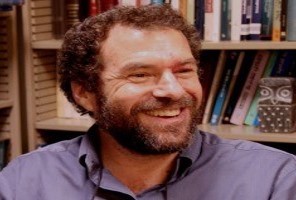On a family trip to Scotland at the end of the summer, on Shabbat, while walking back from Inverness to our Airbnb in Clachnaharry, I found myself lost and, being Shomer Shabbat, without a cell phone. When I asked a local couple for directions, the man, upon learning why I wasn’t carrying my phone, asked: “Are you Jewish?” After a microsecond of considering my response and then answering affirmatively, he responded: “You’re part of a special nation, and we in the world have not treated you well.” I muttered a simple “Thank you.” This interaction, nine months into Israel’s war against Hamas, made me feel both seen and exposed. How odd to be soothed by this familiar lullaby — by this outsider’s acknowledgment of Jewish suffering.
While I have been largely untouched by antisemitism, it was present in my childhood as a barely perceptible shadow in the background. A couple of times a year, my parents, siblings and I would get dressed up for the Primrose Club. Its white tablecloths, high ceilings and multi-course meals made it one of our more formal and luxurious outings. It wasn’t necessarily my favorite place to eat, but it was certainly the venue with the most prestige, and for my father, it was a sign to himself of how dramatically he’d emerged from the poverty of his youth. But the Granite Club was an even fancier all-purpose club 10 minutes from our suburban home, and yet we never frequented it. I remember asking my dad for the reason, and his answer was direct: “Because they don’t admit Jews.” For younger people, this might feel like stories from the old country, but for me this was a part of lived reality, not really so long ago when overt discrimination against Jews still lingered, if not fully legal.
How odd to be soothed by this familiar lullaby — by this outsider’s acknowledgment of Jewish suffering.
My identification with the Jewish nation — the Jewish people worldwide — has been present since childhood, absorbed through years of Jewish day schools and summer camps. When I grew up in Canada in the 1960s and ’70s, there was a stark contrast between the newly airing documentaries with graphic images from the Holocaust, our safe suburban existence and the pride in national rebirth. On the one hand, absorbing vicarious national trauma, and on the other, feeling its distance. My educational pursuit of semikhah and a Ph.D. in Jewish studies, followed by a professional career teaching rabbinical students at the Reconstructionist Rabbinical College, grew out of a powerful attachment to the Jewish people.
When I landed in Tel Aviv in July 2023, I stepped out of the arrival lounge and was “greeted” by blaring horns, alongside chants of “De-mo-cra-tiyah” as tens of thousands of Israelis protested the government’s plan for a judicial overhaul. Moved by the raw emotion and the powerful sense of unity, I commented to the unknown woman next to me, “This is why I came.” She asked, “To protest?” “Yes,” I replied, “and to visit my son.” The two parts of my response were not unrelated. Both marked my love and connection to kin. My July visit was spurred by the desire to join with my brothers and sisters — the Jewish people — out of concern for our homeland.
Next spring, when I teach my course in Medieval Jewish History, the Crusades, Inquisition, polemics and expulsions will all resonate differently. People who think in typologies and crude binaries (defending Israel under all circumstances or blaming Israel for the events of Oct. 7) will hasten to assimilate present forms of antisemitism into rigid paradigms. As a student of history, I value analyses that highlight the distinctiveness of different moments, resisting the tug of the Pesakh Haggadah’s, “In every generation they rise up to destroy us.” And yet, as a living, breathing Jew, I find myself drawn to those in the Diaspora who, like me, have skin in the game. Having lived in Israel for nearly five years, with my oldest friends and colleagues (as well as my oldest son) living in Israel, with their children either fighting or in danger on the home front.
As a traditionally observant Jew, my religious practice includes most of the liturgy that custom (and prayerbook publishers) has enjoined us to recite. But there is one piece that gained new prominence for me in the last year — that puts in bold the sentiments that have undergirded my commitments to the Jewish people in Israel and the West, across the span of Jewish denominations:
Our brothers and sisters, the entire House of Israel who remain in distress and captivity, whether on sea or on land, may the Omnipresent have compassion on them, and bring them from distress to relief, from darkness to light, from servitude to redemption, at this moment, speedily, very soon.
Normally said after the Torah service several times a week though not a crucial part of the liturgy, it has now become the metric that determines whom I feel like I trust when it comes to Israel today: Are people’s positions driven by their identification with the Jewish people in Israel as their brothers and sisters? Is it out of love for them rooted in real relationships? In other words, do they have real skin in the game?








3 Responses
Joel–that is a lovely and touching comment.
+++
Thank you, Joel, and shana tova
Thank you for this important reflection on what motivates us, Joel. People are so ready to make Israel into an “issue” about which they have a lot of opinions rather than as a place, home to real people who make up half of the Jewish People.